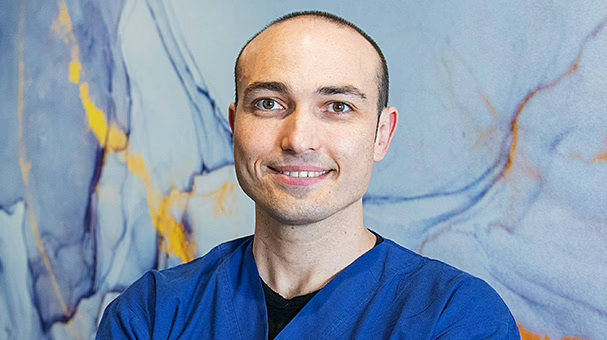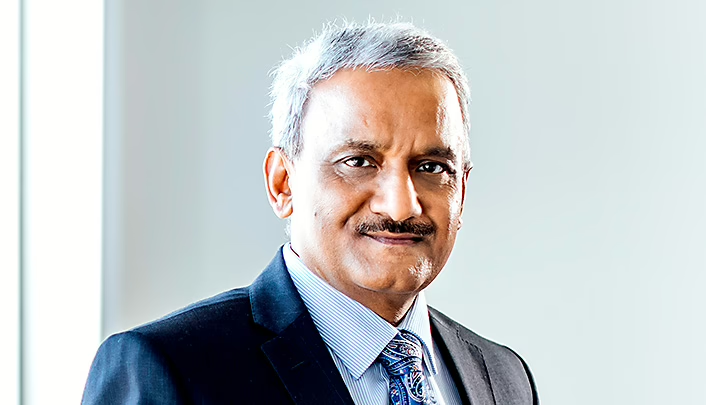LASIK
Laser in situ keratomileusis (LASIK) is the most common type of laser eye surgery performed. It is a suitable laser treatment for eyes with adequate corneal thickness.
LASIK is a two-step, two-laser vision correction procedure. The laser eye surgeon will have pre-programmed the two lasers to the individual requirements of the patient being treated.
An infrared eye tracker is locked in position prior to laser eye treatment. It measures eye movements during the procedure and is capable of following and actively adjusting the laser beam as tiny eye movements are detected.
Once a patient has been prepared (including being given a series of eye drops and a mild sedative), he/she will be taken into the laser eye correction suite and will lie flat on the bed.
After preparing the first eye, the surgeon will use the femtosecond laser to create a flap in the top layer of the cornea (the epithelium and stroma), exposing the tissue bed underneath. The excimer laser is then used to gently and precisely reshape this corneal tissue bed to correct the patient’s refractive error. Finally, the surgeon places the corneal flap back in its original position.
LASIK laser eye correction is painless. You may feel some pressure on the eye but no discomfort. Because the flap adheres to the corneal bed, the healing process begins immediately. The eye has a remarkable ability to heal itself and patients are able to return to most of their daily activities the next day.1
SMILE and SMILE pro
SMILE (small incision lenticule extraction) is a one-step, one-laser procedure using minimally invasive, keyhole surgery – the Zeiss VISUMAX 500 laser makes a tiny 3 mm incision and then creates a disc (lenticule) of corneal tissue. The laser eye surgeon then gently removes the disc to reshape the cornea and correct the refractive error. Since no flap was created, the top layer of the cornea is essentially intact.
SMILE pro is an advanced version of SMILE and uses the latest VISUMAX 800 laser technology. Vision Eye Institute offers SMILE pro in Sydney and Melbourne.
Certain patients may be better suited to SMILE pro laser eye surgery, including people with a high degree of short-sightedness, athletes who play contact sports and people at a higher risk of developing dry eye after surgery.4
ASLA/PRK
Advanced surface laser ablation (ASLA) is also known as photorefractive keratectomy or PRK. During this procedure, the laser eye doctor uses a topical solution to soften the top layer of corneal cells, allowing them to be gently removed. The excimer laser is then used to reshape the exposed corneal tissue bed to correct the patient’s refractive error. Once the procedure is complete, a ‘bandage’ contact lens is placed on top of the eye for 4 days to aid the healing process.
ASLA is generally the procedure of choice for patients who have thin or unusual corneas.
Monovision/blended vision
During this procedure, the laser eye doctor will correct one eye (usually the dominant one) for distance vision and the other eye for reading/near vision. When looking into the distance, your brain pays more attention to the eye that is focused for distance and vice versa when looking at close objects (i.e. your brain relies more on the eye that is focused for near distance). Overall, the images from both eyes are processed by your brain as one blended image.
Many people who have monovision find that they adjust within a matter of days and many can minimise their use of glasses. Before proceeding with surgery, your ophthalmologist will usually get you to trial a set of contact lenses to make sure you can adapt to the change.
Monovision can be achieved using laser eye surgery (e.g. LASIK or ASLA) or artificial lenses (e.g. replacement lenses or implantable phakic lenses).
What to expect on the day of surgery
Immediately before your procedure, you will receive anaesthetic (numbing) eye drops and anti-inflammatory eye drops. Patients can also choose to have a sedative to help them relax. After allowing the sedative to take effect (around 30 to 45 mins), you will be taken into the procedure room and asked to lie down on a surgical bed. The procedure itself will vary depending on which type of surgery is being performed (e.g. whether one or two lasers are used).
If you have had a sedative, you will be given time to recover before being discharged. You will also be given protective glasses and eye drops to go home with. A follow-up appointment for later that same day or the next day will be scheduled before you leave.
You can expect to be in the laser suite for between 10 to 20 minutes (depending on the type of procedure), and in the day surgery for approximately 2 hours.
Laser eye surgery enhancement procedures
The majority of laser eye surgery procedures produce excellent outcomes and most patients are delighted with their laser eye treatment results.2,3 However, there may be occasions when a second (enhancement) procedure is required to optimise the visual result.3 For example, over– or under-correction of your refractive error may occur, meaning the focusing power is slightly outside of the target range after surgery.
The success of laser vision correction depends on a number of factors, including the health of the cornea, type and degree of refractive error and age of the patient.
Enhancement procedures tend to be quicker than the original procedure, as only minor corneal reshaping with the laser is required. At Vision Eye Institute, enhancement procedures are free of charge for up to two years from the date of the original surgery. Please note that this is not an industry standard.
Why Vision Eye Institute
Our mission is to remain at the forefront of technology and clinical research to ensure the best outcomes for our patients. As the largest provider of ophthalmic services in Australia, we are able to ensure that our clinics are equipped with the latest state-of-the-art technology. The research unit is overseen by a full-time research coordinator and our ophthalmologists are regularly invited to participate in international trials and present at international conferences. They are also heavily involved in teaching and examining medical students, optometry students and ophthalmology trainees.
We perform laser eye surgery (and other forms of vision correction) at our clinics across Australia, including:
BUPA Ultimate Health members
If you have Ultimate Health Cover with BUPA and have served a 3-year waiting period, you are entitled to 100% cover for laser eye surgery – this includes PRK, LASIK and SMILE.* All procedure costs are billed straight to BUPA, so you don’t have to worry about out-of-pocket or upfront expenses.
Contact BUPA on 134 135 or go online at www.bupa.com.au to check your level of cover.
*Excludes consultation fees and diagnostic tests.
Medibank members' offer
Medibank members can receive a 15% reduction on their surgical fees if they have a LASIK, ASLA or SMILE procedure performed by Vision Eye Institute.* This offer is available to members on selected extras and packaged covers.
There’s no waiting period so you can upgrade your cover and receive the benefit straight away.
Contact Medibank on 132 331 to check whether you qualify or visit their website.
*Excludes consultation fees and diagnostic tests.
Laser eye surgery payment plans
We offer interest-free, flexible payment options for laser eye surgery in partnership with humm loan and Latitude Gem Visa (credit card). Read our laser eye surgery payment plans factsheet to for more information.
SMILE® is a registered trademark of Carl Zeiss Meditec
Clinic team
NSW
-
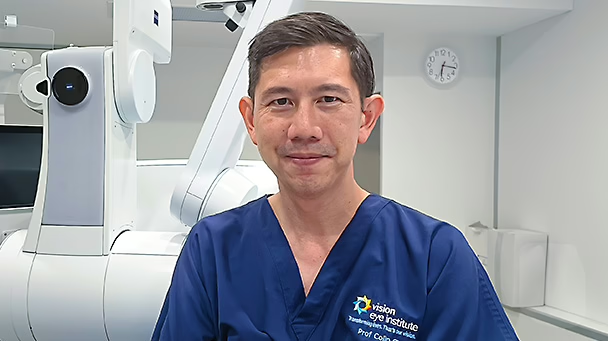
Prof Colin Chan
MBBS(Hons) MPhil FRANZCO
Locations
- Chatswood
Book a consultationwith Prof Colin ChanSA
VIC
-
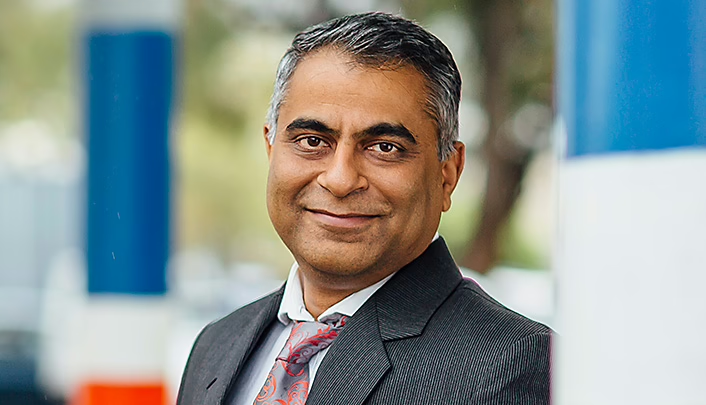
Dr Uday Bhatt
MBBS DTMH DO MSc(EBP) FRCSEd FRCOphth FWCRS FRANZCO
Locations
- Camberwell
- Coburg
- Footscray
Book a consultationwith Dr Uday Bhatt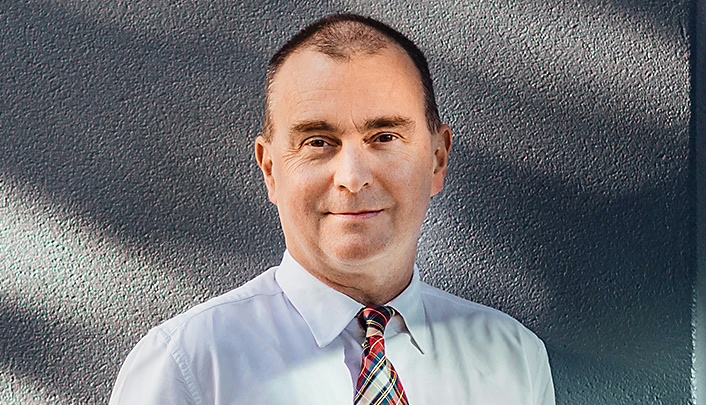
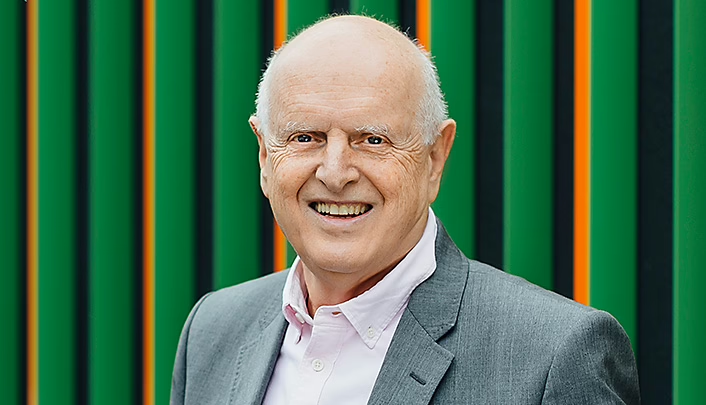
Dr Joe Reich AM
MBBS DO FRACS FRANZCO
Locations
- Camberwell
- Melbourne
Book a consultationwith Dr Joe Reich AMReferences
- American Refractive Surgery Council. What to expect with LASIK recovery [Internet]. American Refractive Surgery Council; 2016 [cited 2021 Jan 21]. Available from: https://americanrefractivesurgerycouncil.org/what-to-expect-with-lasik-recovery/↩︎
- American Refractive Surgery Council. What is the LASIK success rate? [Internet]. American Refractive Surgery Council; 2017 [cited 2021 Jan 21]. Available from: https://americanrefractivesurgerycouncil.org/laser-eye-surgery-lasik-success-rate/↩︎
- Wilkinson et al. Refractive eye surgery: helping patients make informed decisions about LASIK. Am Fam Physician. 2017 May 15;95(10):637-644. Available from: https://pubmed.ncbi.nlm.nih.gov/28671403/↩︎
- Ganesh S, Brar S, Swamy DT. Comparison of Clinical Outcomes and Patient Satisfaction Following SMILE Performed With the VisuMax 800 in One Eye and VisuMax 500 in the Contralateral Eye. J Refract Surg 2025;41(1):e14-e21. doi: 10.3928/1081597X-20241113-02.
Resources- Laser Eye Surgery brochure
- Presbyopia fact sheet
- Comparing your laser eye surgery options
- LASIK fact sheet
- ASLA/PRK factsheet
- SMILE pro fact sheet
- Is laser eye surgery safe?
- Can laser eye surgery fix astigmatism?
- Will I need glasses or contact lenses after laser eye surgery?
- Chinese Laser Eye Surgery brochure
- Focus on laser eye surgery (what you need to know) brochure
The information on this page is general in nature. All medical and surgical procedures have potential benefits and risks. Consult your ophthalmologist for specific medical advice.
Date last reviewed: 2026-02-13 | Date for next review: 2028-02-13




